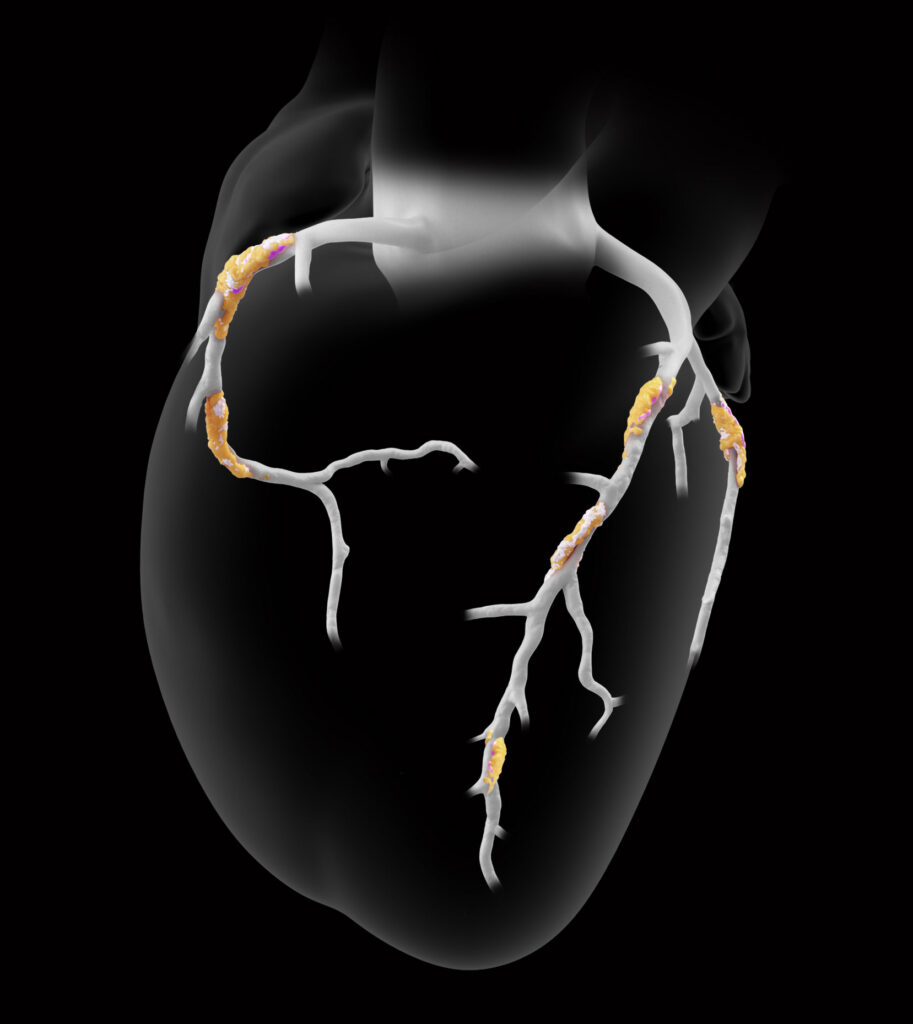How It Works
When ordering a CCTA for patients, clinicians can include Heartflow Plaque Analysis to enhance their diagnostic confidence and potentially improve patient outcomes through tailored treatment strategies.
Heartflow's Plaque Analysis represents a significant advancement in proactive care for CAD. As a non-invasive, AI-enabled disease management tool, it provides clinicians a better path towards accurate risk assessment and personalized care.


DECIDE is the largest prospective registry on Plaque Analysis in CAD, demonstrating how Plaque Analysis with Heartflow Plaque Staging* empowers physicians with clinical insights that lead to real-world impact.
What if 50% of your CCTA patients could benefit from an adjustment to their treatment plan?
Plaque Analysis identifies and quantifies all plaque types, providing you with personalized data and Plaque Staging* insights to determine which 50% of your patients require changes to their treatment plans.
Achieve better treatment decisions earlier to reduce risk and adverse events associated with cardiovascular disease.
Patients in a high total plaque volume cohort
have a 7x risk of a major cardiac event
compared to the low plaque volume cohort.2
with 0 calcified plaque had a change in management1
of patients had their medical management changed when Plaque Analysis with Plaque Staging* was added compared to their management based on CCTA alone.1
Demonstrated accuracy in quantifying and characterizing coronary plaque so clinicians can be confident in their diagnosis and management.
agreement with IVUS in precisely quantifying and characterizing coronary plaque.3
Quantifies calcified, non-calcified, and low attenuation plaque to help clinicians assess extent of CAD risk and provide personalized treatment.
The interactive model provides:
When ordering a CCTA for patients, clinicians can include Heartflow Plaque Analysis to enhance their diagnostic confidence and potentially improve patient outcomes through tailored treatment strategies.
[Plaque Analysis] can actually help guide our treatment by identifying high risk plaque components…It’s treating the whole patient and their overall risk, not just the one component of that risk.
”
Discover how you can use Heartflow to advance your approach to coronary artery disease diagnosis, treatment and management.